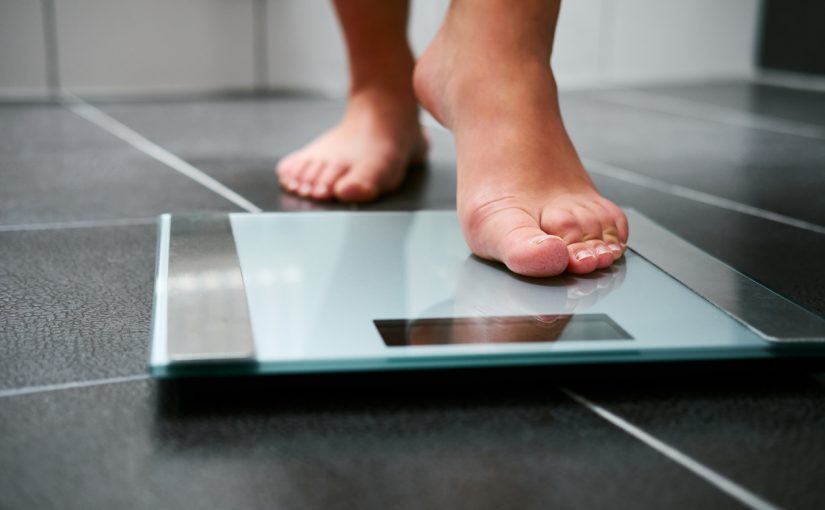Life can get busy, which can sometimes result in packing on a few extra pounds. This is entirely understandable as the pressures of life, including work, family, and friends, can take up a lot of your time and energy. If you have decided to lose those extra pounds with diet and exercise, you may be surprised to see more than just weight coming off of your hips and thighs. You might wonder, do your feet shrink when you lose weight? In fact, weight loss can also impact the size of your feet, but maybe not for the reasons you think.
Most people plan to purchase a new wardrobe as their pants and shirts may loosen up with weight loss, but new shoes are something you may not have expected. Significant weight loss can result in going down a full shoe size. When you lose weight, you lose it all over your body, including places like your hands and feet.
Extra Pounds and the Impact on Your Feet
While a couple of extra pounds may not be a significant impact on your body, packing on large amounts of excess weight around can impact your feet. For those who are overweight or obese, the impact of the extra weight on your feet can negatively impact their ability to function properly and stay strong. This is because excess weight contributes to several structural problems like heel pain or arthritis.
The excess weight stretches out the connective tissues in our feet, which puts extra strain on your foot muscles. It can also wear down the natural fat pads which cushion your feet and absorb the shock when you take steps or stand for long periods.
Weight Loss and Your Feet
One of the major benefits of weight loss is the impact it has on your overall health. However, another great bonus is that weight loss can relieve the impact of the excess weight on your feet. If you experienced pain, swelling, or poor circulation in your feet, losing weight can likely alleviate those issues. The pressure that extra weight can have on your feet can cause you pain and impact the strength and health of your feet.
Depending on how much weight you lose, your shoes may feel looser. The structure of your foot has not shrunk, and the frames of your feet are still the same. However, the weight loss can result in the loss of fat in your feet and reduced inflammation. Excess fat can cause inflammation in your feet, and both contribute to an increase in the size of your feet.
Exercise and Foot Pain
If you experience foot pain and are trying to lose weight, you may find it difficult. Many forms of exercise can exacerbate your foot pain, making it difficult to stay motivated. You can also run the risk of further injury, which can derail your weight loss regimen completely. Below you will find some tips for how to stick to your weight loss plan without injuring your feet.
Exercise:
Low impact exercises are essential for those with foot pain. Water aerobics, swimming, yoga, and walking are all great places to start. Talk to your podiatrist and medical provider to be sure that this will work for you.
Steps:
If you can move around and walk without issue, shoot for 10,000 steps a day. Even without rigorous exercise, increasing your movement can burn calories and help you shed the extra weight.
Diet:
Many nutritionists and health experts will tell you that weight loss happens in the kitchen. Now, you don’t need to hop on the most recent diet bandwagon or completely cut out all your favorite foods. Simply monitor what you are eating and be sure you are getting your share of fruits, vegetables, lean proteins, and healthy carbohydrates. Lower your intake of fats, processed foods, and excess sugar.
Foot or Ankle Pain
If you have foot or ankle pain and cannot get relief, it may be time to see a specialist. When you have gained some extra weight and have foot pain, a specialist can help get you back on track without further injuring yourself.
If you have lost weight but still have foot pain, you may have a more significant issue on your hands that a specialist will need to diagnose and treat. Below you will find a few symptoms that should alert you that it’s time to make an appointment. If you feel any of the following in your lower leg, ankle, or foot, contact a specialist:
- Pain that lasts for more than 3-4 days that makes regular movement difficult;
- Swelling that does not get better after home treatments like icing, resting, or elevation;
- Redness, warmth, tenderness or a burning sensation; or
- Numbness or tingling.
Dr. Jamshidinia in Los Angeles
If you are experiencing foot or ankle pain, contact us today. He is a board-certified foot and ankle doctor trained in all areas of foot and ankle surgery and treatment. Dr. Jamshidinia and his team believe in comprehensive patient care and are focused on getting you back to full health. Contact Jamfeet today for any of your foot or ankle needs!


